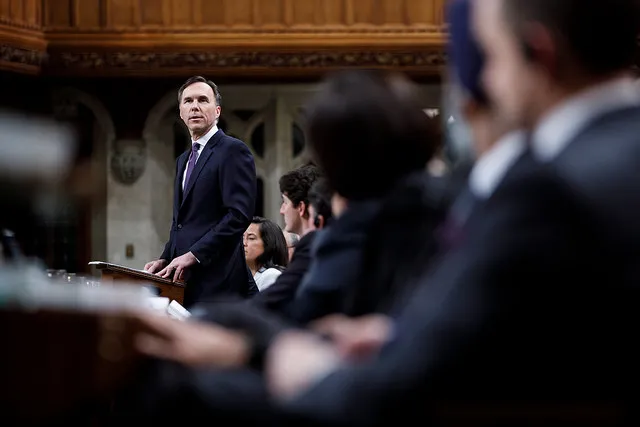In 2017 the federal government committed $650 million to implement our first-ever truly national climate change plan, the Pan-Canadian Framework on Clean Growth and Climate Change (PCF), and put the nation on track to meeting our emissions reductions target under the Paris Agreement. These resources were allocated for measures including a national coal phase-out, national clean fuels standard, and supporting smart grid, storage and clean electricity. The last year has seen particular progress in the national coal phase-out work, with the publication of regulations for the electricity sector that phase out coal by 2030 and the announcement of the Just Transition task force to support coal workers and communities and equip them to seize the economic opportunities of the growing renewable energy sector. The federal government also announced its clean fuel standard regulatory framework and stakeholder consultations and technical working sessions are ongoing to produce draft regulations.
This year’s federal budget delivers on another important pillar of Canadian’s health, well-being, and wealth by allocating $1.3 billion over five years to protect our nature, parks and wild spaces. Protecting our land and the species it supports ensures we can continue to benefit from the ecosystem services they provide, and multiplies our opportunities to mitigate and adapt to climate change. Conservation and climate change go hand in hand.
Close eye on PCF implementation
In addition to last year’s budget allocations for PCF implementation, Budget 2018 also assigns funding for carbon pricing and for monitoring progress to continue the important work of implementing our national climate change plan. Carbon pricing is the plan’s key tool for achieving emissions reductions while supporting innovation. With this in mind, we are pleased to see that Budget 2018 allocates $109 million over five years to develop, implement, administer, and enforce the federal carbon pollution pricing system. We will be working with government and other stakeholders in the coming months to inform the final regulation on the approach to carbon pollution pricing for industries that are emissions-intensive and trade-exposed.
Another $20 million over five years is allocated to fulfill the PCF’s commitment to assess the effectiveness of its measures and identify best practices. We look forward to participating in this important accountability exercise. The PCF contains over 50 measures to lay the ground work for emissions reductions and clean growth in every sector of the economy. We are very keen to see the government become more granular in its messaging on how committed resources align with the need for timely implementation of effective measures across every sector. As this work progresses, we will be able to better assess if this year and last year’s budget allocations are enough to fully implement the PCF. Part of this work should be directed towards helping the government determine areas for increased ambition to avoid falling short of Canada’s Paris Agreement target for 2030.
Promising commitments
Another major item in yesterday’s budget is the five-year extension of a program giving clean energy developers access to the same kind of tax support for projects developed in Canada as is available in other industries. The existing program of accelerated deductions for clean energy assets had been due to expire in 2020, but Budget 2018 earmarks $123 million over the 2017-18 to 2022-23 period to provide accelerated capital cost allowances for eligible property (e.g. energy efficient equipment or renewable energy hardware) acquired before 2025. This crucial measure reaffirms Canada’s commitment to encouraging investment in non-emitting electricity generation (as well as in other clean-energy industrial projects), and helps to maintain a level playing field between competitors in the electricity sector.
We are also pleased that the budget commits funds to support the implementation of the environmental law reform legislation released earlier this month. $1 billion over five years is allocated to this package of reforms and to creating the new Canadian Energy Regulator — a major and much needed investment to fix our environmental laws and restore public trust. Read more on this in my colleague Nichole Dusyk’s blog. These reforms are critical for aligning decisions on major energy infrastructure with our commitments under the Paris Agreement. Funding to implement the legislation is a necessary piece of the puzzle.
Also under Budget 2018 was the announcement to support Indigenous Peoples in increasing their skills and training through a new $447 million Indigenous Skills and Employment Training Program. This funding will be important for Indigenous communities to gain meaningful employment and participate fully in clean energy projects and opportunities while building the skill force needed to continue to shape our low-carbon future. This new funding is well aligned with the recently announced Clean Energy For Rural and Remote Communities program and the Capacity Building Stream under the program. Equipping communities with the right skills and job training will ensure their active leadership and participation in clean energy projects throughout Canada.
The federal government was elected with a majority mandate to advance a significant and ambitious agenda on climate change, natural resource management, and environmental assessments. With two successive budgets delivering the means to implement our national climate change plan, to protect Canada’s nature and to create a new energy regulator, the government is proving it’s serious about this commitment. We look forward to continuing to work with the federal government to track and ensure the full implementation of the PCF, with increasing ambition to ensure Canada’s meets its climate targets.








